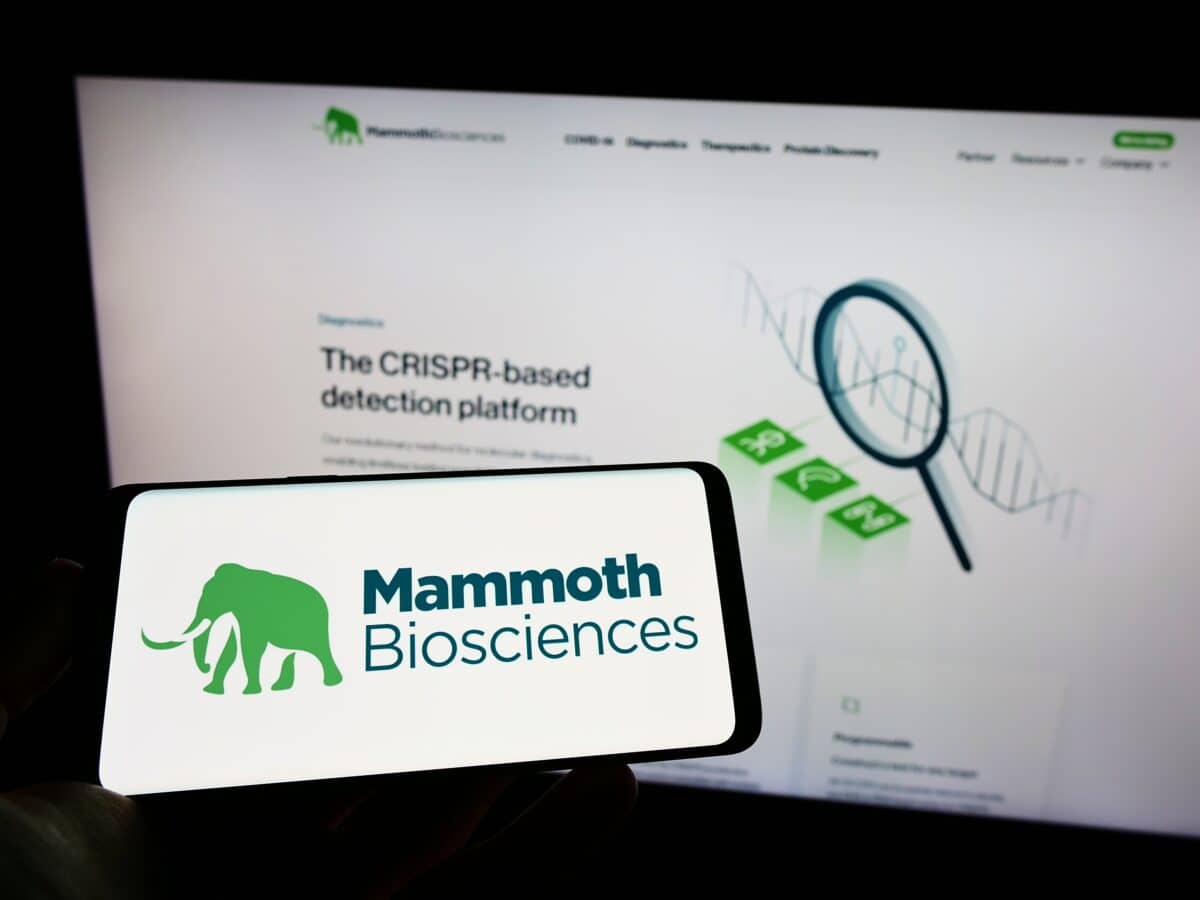Key Points:
- CRISPR is an advanced gene-editing tool used to modify the genomes of living organisms with unrivaled precision.
- Mammoth Biosciences uses CRISPR/Cas9 technology to detect diseases. Its major project is a platform for detecting SARS-CoV-2, the virus that causes COVID-19.
- Inscripta Therapeutics is committed to making gene editing more accessible and affordable so that it can be used to treat a variety of diseases.
Do you know what CRISPR is? If you don’t, don’t worry!
Gene editing is one of those terms that you may have heard before but never really understood. It sounds like a thing out of a science fiction novel, and the truth is that gene editing has come a long way in recent years. It’s now possible to edit genes using a technique known as CRISPR. But, what does this mean for the future?
Several companies engage in CRISPR technology, and today we’re going to look at the largest ones. We’ll briefly review each firm’s activities and information. So, if you’re curious about Gene Editing CRISPR companies leading the way in this field, read on!
10. Inari Agriculture
Inari Agriculture is a startup using CRISPR to develop “customized seeds.” But, what are customized seeds?
In short, CRISPR is an advanced gene-editing tool used to modify the genomes of living organisms with unrivaled precision. The technology already develops new plant varieties and could even create customized seeds for farmers.
The company aims to use CRISPR to create seeds optimized for specific growing conditions, such as climate, soil type, and pest pressure. Inari’s approach is first to map the genomes of plants to identify genes that confer desired traits. The company then uses CRISPR to edit these genes in the plant’s genome. This allows Inari to create plants with the exact features that farmers need.
Inari Agriculture is still in the early stages of development, but it has already secured funding from leading venture capitalists, including Bill Gates.
9. Pairwise Plants
Pairwise Plants is using CRISPR-Cas9 technology to develop new varieties of crops with enhanced traits, such as disease resistance and increased yield. The company’s mission is to improve the sustainability of food production by developing crops that require fewer inputs, such as water and fertilizer, and have a reduced environmental impact. In the case of CRISPR, the gene editing aspect is their primary focus.
The gene-editing process can introduce heritable changes, allowing the gene-edited plant to pass on the new trait to its offspring. This makes gene editing a powerful tool for plant breeding, as it can significantly speed up the development of new varieties with desired characteristics.
8. Mammoth Biosciences
Mammoth Biosciences uses CRISPR/Cas9 technology to detect diseases. The company was founded in 2017 by Janice Chen, Jennifer Doudna, Trevor Martin, and Lucas Harrington. Their major project is a platform for detecting SARS-CoV-2, the virus that causes COVID-19.
Mammoth Biosciences has raised over $200 million from investors such as Bill Gates and Andreesen Horowitz. The company is headquartered in San Francisco, California.
Mammoth Biosciences’ platform uses CRISPR/Cas9 to detect SARS-CoV-2. The platform works by targeting a specific gene in the virus’s genome and using CRISPR/Cas9 to cut it out. This gene is essential for the virus to replicate, so it cannot reproduce without it. The platform can also detect other diseases, such as cancer.
Mammoth Biosciences’ platform is still in development, but the company is hopeful that it will be able to help people around the world by providing early detection of diseases like SARS-CoV-2.

©T. Schneider/Shutterstock.com
7. Inscripta Therapeutics
Inscripta Therapeutics uses CRISPR-Cas9 technology. They are headquartered in Boulder, Colorado, and were founded in 2015 by Ryan T. Gill, Andrew Garst, and Tanya Lipscomb.
Their research focuses on natural and engineered nucleases that are associated with CRISPR-Cas9. Their major project is the MAD7™ nuclease, which they developed and published to encourage broader CRISPR use in academic and business sectors.
Inscripta Therapeutics is committed to making gene editing more accessible and affordable so that it can be used to treat a variety of diseases. Inscripta’s team of dedicated professionals is committed to providing cutting-edge gene editing tools and services that enable their customers to achieve their specific goals.
Through their innovative products and services, they aim to make gene editing more accessible and affordable so that it can be used to improve the lives of people around the world.
6. eGenesis
Organ transplants are lifesaving procedures, but they come with several risks. One significant risk is organ rejection when the body’s immune system attacks the transplanted organ. This can be a severe and even life-threatening complication. That’s where eGenesis comes in.
eGenesis company was started in 2014 by Luhan Yang and George Church. The company’s research focuses on CRISPR-based xenotransplantation, which is the transplantation of organs from other species into humans.
eGenesis’ major project is to create organs from other species that are safe and long-lasting for human transplant patients. To date, the company boasts significant progress in this area and hopes to revolutionize the field of organ transplantation. eGenesis is working tirelessly to create organs from other species that are both safe and long-lasting for human transplant patients.
5. Synthetic Genomics
Founded in 2005, Synthetic Genomics utilizes CRISPR technology to modify microalgae genes to boost lipids by 50%. The company was founded by Hamilton O. Smith, Juan Enriquez, J. Craig Venter, and David C. Kiernan.
Synthetic Genomics’ research focuses on synthetic biology, which employs genomic solutions to address global sustainability issues. The company’s principal project is to develop a sustainable light-duty transportation fuel for vehicles and aircraft by harnessing algae’s energy.
The company continues to be a leader in gene editing and synthetic biology, and its innovative solutions are helping to address some of the world’s most pressing challenges.
4. Editas Medicine
This gene editing (CRISPR) company was founded by Feng Zhang, and David R. Liu, among others. Their research focuses on engineering targeted and durable gene-edited medicines using the CRISPR Cas9 and Cas12a (Cpf1) nuclease to target a wide range of genetic changes.
A significant project of theirs is a drug to treat Leber Congenital Amaurosis type 10, a rare inherited eye disease that leads to blindness. In preclinical studies, the drug has improved vision in mice.
Editas Medicine is currently conducting clinical trials of the drug in humans. If successful, it will be the first gene-edited drug approved for human consumption. The company’s ultimate goal is to translate its gene-editing technology into a powerful therapeutic platform to cure patients with genetically driven diseases at their most fundamental level by correcting their disease-causing genes.

©rafapress/Shutterstock.com
3. Intellia Therapeutics
Genome editing is a rapidly evolving field with the potential to revolutionize medicine. Intellia Therapeutics is at the forefront of this cutting-edge field, developing therapeutics tailored to each individual’s unique genome.
The company’s technology enables the precise, safe, and permanent editing of genomic sequences. This personalized approach can potentially transform the treatment of a wide range of diseases, including cancer, genetic disorders, and infectious diseases.
Intellia’s technology depends on the CRISPR-Cas9 system, which adapts for use in mammalian cells. The company has developed proprietary delivery systems for delivering the CRISPR-Cas9 complex into cells. Intellia is also developing next-generation CRISPR-based technologies, including CRISPR-Cas12a (Cpf1), which has the potential to broaden the range of genomic sequences that can be of a target.
The company is advancing a broad therapeutics pipeline in multiple disease areas, including oncology, metabolic diseases, and genetic disorders. In addition, Intellia is developing in vivo and ex vivo approaches to treat infectious diseases. The company has formed strategic partnerships with leading pharmaceutical companies, including Novartis, Regeneron, and Lilly.

©rafapress/Shutterstock.com
2. Beam Therapeutics
Beam Therapeutics began in 2017 by J. Keith Joung, Feng Zhang, and David R. Liu. Utilizing CRISPR, they swap bases to repair mutated genes responsible for the disease. This is base editing, which is a preferable, shorter-term treatment to DNA alteration. Beam first employed RNA base editing in 2019.
The RESCUE system (RNA Editing for C to U) uses the CRISPR-associated enzyme Cas13 to target and edit RNAs in mammalian cells. This system can correct point mutations, insertions, or deletions (indels) in RNAs. The REPAIR platform (RNA Editing for A to I Replacement) utilizes the CRISPR-associated protein Cas13a paired with an adenosine deaminase that generates A-to-G RNA modifications.
Together, these two systems allow for comprehensive RNA editing capabilities in mammalian cells.
Beam’s initial focus is developing treatments for hereditary bleeding disorders like hemophilia and sickle cell disease. However, their technology has the potential for use in a wide range of other diseases caused by mutations in RNAs, including cystic fibrosis, Duchenne muscular dystrophy, and Huntington’s disease.
In addition to their work on gene therapy approaches, Beam is also researching small molecule activators of gene expression as potential therapeutics for various diseases.
1. CRISPR Therapeutics
CRISPR Therapeutics (NASDAQ: CRSP) is a clinical-stage biotech company that develops CRISPR/Cas9-based gene therapies. Its primary focus is on hematologic disorders and solid tumors.
The company’s most advanced program is CTX001, a CRISPR/Cas9-based gene therapy for beta-thalassemia and sickle cell disease. In November 2020, CRISPR Therapeutics announced positive interim data from the ongoing Phase 1/2 clinical trial CTX001.
In January 2021, CRISPR Therapeutics announced that the U.S. Food and Drug Administration (FDA) had granted Breakthrough Therapy designation to CTX001 for treating sickle cell disease. This is a significant milestone for the program and accelerates its path to market.
CRISPR Therapeutics is also developing CTX102, a CRISPR/Cas9-based gene therapy for Duchenne muscular dystrophy. The company currently enrolls patients in a Phase 1/2 clinical trial of the treatment.

©rafapress/Shutterstock.com